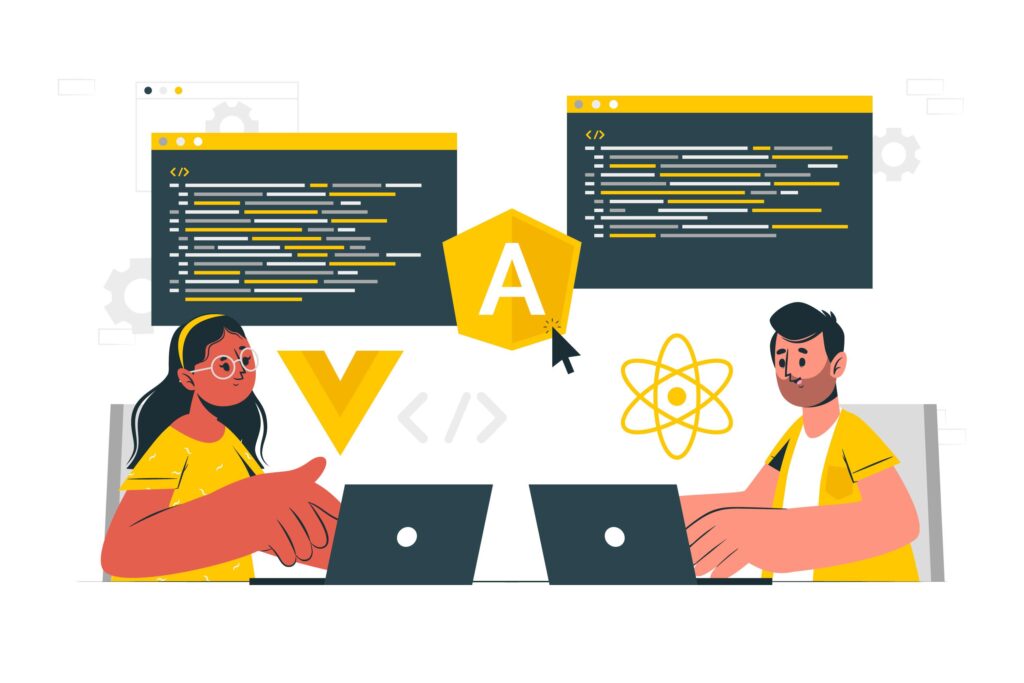Technical screening, a crucial step in the recruitment process, ensures that potential hires possess the skills and expertise necessary to excel in their roles. As businesses increasingly rely on technology to drive growth and innovation, the demand for effective and efficient technical screening methods has never been higher.
Technical screening is designed to assess a candidate’s technical abilities, problem-solving skills, and overall fit for a role. This process helps companies reduce the risk of poor hires, which can cost upwards of $15,000 per misstep, according to the Society for Human Resource Management.
While companies have long relied on coding tests and technical interviews as standard assessment tools, innovative approaches are now reshaping how we evaluate candidates. Companies today are making use of engaging, game-based simulations and technical assessments to assess a candidate’s abilities instead of conventional tests. This approach not only makes the process more interactive but also provides deeper insights into how candidates solve problems and work in teams.
As we delve deeper into this blog, we’ll explore various technical screening methods, both traditional and cutting-edge, and understand how these approaches can transform the hiring landscape.
What is Technical Screening?
How do companies ensure that new hires have the right technical skills to thrive in their roles? Technical screening is the answer. This process is designed to evaluate a candidate’s technical competencies and problem-solving abilities, ensuring that they meet the specific requirements of the job. By assessing these skills before making a hiring decision, companies aim to find candidates who not only fit the role but can also contribute effectively to the team and organization.
74% of recruiters say that it’s a struggle to find qualified candidates (CodinGame 2020 survey). On the flip side, developers are increasingly frustrated with the recruitment process.
The Purpose of Technical Screening
Technical screening involves a series of evaluations that test a candidate’s technical knowledge, practical skills, and problem-solving capabilities. The purpose of this process is multifaceted:
- Skill Validation: Confirming that candidates possess the required technical skills.
- Fit Assessment: Ensuring candidates’ skills align with job requirements and company needs.
- Predicting Performance: Gauging how well candidates will perform in real-world scenarios and under pressure.
Common Methods Used in Technical Screening
There are several methods used to screen candidates for technical roles. Each has its own strengths and limitations:
Coding Tests
Coding tests are designed to assess a candidate’s programming skills by having them solve coding problems or complete specific programming tasks.
- Practice regularly: Solve coding problems on platforms like LeetCode, HackerRank, or CodeSignal to familiarize yourself with common question types and improve your problem-solving skills.
- Time management: Read through all questions before starting, prioritize easier ones, and allocate time wisely. Don’t spend too long on any single problem.
- Write clean, efficient code: Focus on writing clear, well-commented code that’s easy to understand. Optimize for time and space complexity where possible.
- Test your code: Before submitting, run through test cases, including edge cases, to catch any bugs or errors in your solution.
Technical Interviews
Technical interviews involve a structured conversation where candidates answer questions and solve problems related to their field of expertise, often with a focus on algorithms, data structures, and system design.
- Think out loud: Verbalize your thought process as you work through problems. This helps interviewers understand your approach and reasoning.
- Ask clarifying questions: Don’t hesitate to seek additional information or clarification about the problem. This shows your attention to detail and communication skills.
- Use relevant examples: When explaining concepts, use real-world examples or previous project experiences to demonstrate your practical understanding.
- Be prepared to discuss your resume: Be ready to elaborate on any technical skills or projects listed on your resume, as they may form the basis for interview questions.

Whiteboard Challenges
Whiteboard challenges involve solving problems or designing systems on a whiteboard while explaining the thought process to the interviewer.
- Plan before coding: Spend time understanding the problem and outlining your approach before writing any code. This shows your ability to think strategically.
- Use pseudo-code: Start with pseudo-code to outline your algorithm, then translate it into actual code. This helps organize your thoughts and allows for easier corrections.
- Manage your space effectively: Plan your whiteboard space usage. Leave room for additions or changes, and use clear, legible handwriting.
- Engage with your interviewer: Treat the challenge as a collaborative exercise. Respond to hints, ask for feedback, and be open to suggestions for improvement.
Benefits of Modern Technical Screening Methods
In today’s competitive job market, traditional technical screening methods are being complemented—or in some cases, replaced—by modern techniques designed to offer a more comprehensive and unbiased assessment of candidates.
At PerspectAI, we take a modern skill assessments approach by leveraging technology to provide a more objective, efficient, and engaging evaluation process. To gain insight into the content of digital technical rounds, consider exploring PerspectAI’s skill assessments library. It offers a comprehensive overview of the types of challenges candidates might face in modern technical evaluations
Here’s a look at some of the key benefits of technical screening:
1. Objective Evaluation of Skills
Modern technical screening methods, such as automated coding platforms and gamified assessments, provide a more objective way to evaluate a candidate’s skills. These methods reduce reliance on subjective human judgment, which can vary between interviewers.
- Automated Coding Platforms: Tools like HackerRank and CodinGame automatically grade coding tasks based on predefined criteria. This ensures that all candidates are evaluated consistently, based on their actual performance rather than subjective opinions.
- Game-Based Assessments: Platforms like Pymetrics use games to assess cognitive and emotional skills. These assessments are designed to provide objective insights into a candidate’s abilities, often correlating well with job performance metrics.
2. Reducing Bias in Recruitment
Modern screening methods help mitigate biases that can affect hiring decisions. By using standardized tests and objective criteria, companies can ensure that all candidates are evaluated based on their skills and qualifications, rather than personal impressions or unconscious biases.
- Blind Assessments: Some platforms offer anonymous assessments where the candidate’s identity is concealed during the initial evaluation stages. This helps reduce bias related to gender, ethnicity, or educational background.
- Diverse Testing Formats: Incorporating a variety of assessment methods, such as game-based evaluations and simulation exercises, ensures a broader and more inclusive evaluation of different skill sets.
3. Enhancing Candidate Experience
Modern screening methods often focus on improving the candidate experience by making the process more engaging and less stressful. This can lead to a more positive perception of the company and a better overall experience for candidates.
- Interactive Assessments: Game-based assessments and simulations offer a more engaging and less intimidating way for candidates to showcase their skills. These methods can help candidates feel more relaxed and better able to demonstrate their true abilities.
- Flexible Testing Environments: Many modern platforms allow candidates to complete assessments at their convenience, reducing the pressure and logistics associated with traditional timed tests.
FAQs About Technical Screening
1. What can I expect during a technical screening, and how can I prepare for it?
Technical screenings often involve a mix of coding tests, problem-solving exercises, and sometimes even live coding sessions or simulations. To prepare effectively:
- Brush Up on Core Skills: Review the essential programming languages and technologies relevant to the job.
- Practice Problem Solving: Use platforms like LeetCode or HackerRank to tackle common coding challenges.
- Understand the Format: Familiarize yourself with the types of assessments used by the company. If it’s a game-based assessment, try similar interactive tools to get comfortable with the format.

2. How can I stand out during a technical screening if I’m nervous or under pressure?
Nerves are common, but there are strategies to help you perform your best:
- Stay Calm and Think Aloud: Communicate your thought process clearly. Interviewers are often interested in how you approach problems, not just the final answer.
- Break Down Problems: Start by breaking down complex problems into manageable parts and tackle them one step at a time.
- Practice Relaxation Techniques: Breathing exercises or quick mindfulness practices can help reduce anxiety and keep you focused.
3. Will a technical screening really reflect my on-the-job performance?
While no assessment can perfectly predict job performance, modern technical screenings are designed to provide insights into how you might handle real-world tasks.
- Game-Based Assessments: These often simulate practical scenarios and can give employers a better idea of how you might perform on the job.
- Coding Challenges: Reflect your problem-solving skills and coding abilities in a controlled environment, which can be indicative of your real-world performance.
4. How do technical screenings help me if I’m applying to multiple companies?
Technical screenings can offer several benefits when applying to multiple companies:
- Skill Assessment: They help you identify your strengths and areas for improvement, which can be valuable for refining your skills.
- Feedback: Some platforms provide feedback on your performance, which can be used to enhance your skills for future applications.
- Efficiency: Once you’re familiar with the process and have practiced with similar tools, you can navigate technical screenings more efficiently across different companies.
5. What if I don’t perform well in a technical screening? Can I still be considered for the position?
Not performing well in a technical screening doesn’t necessarily mean the end of the road. Many companies also consider the following:
- Holistic Review: Some companies look at your overall application, including past experiences and cultural fit, in addition to the screening results.
- Opportunities for Improvement: If you receive feedback, use it as a learning opportunity to strengthen your skills for future applications.
- Alternate Assessments: Depending on the role, there may be other ways to demonstrate your capabilities, such as through additional interviews or project portfolios.
Remember, technical screening assessments are just one part of the hiring process. While they can feel daunting, view them as an opportunity to showcase your skills and problem-solving abilities. Approach each assessment with confidence, manage your time wisely, and don’t hesitate to ask for clarification when needed. Even if you don’t ace every question, demonstrating your thought process and ability to learn quickly can leave a positive impression. Stay calm, do your best, and let your technical aptitude shine through. With the right preparation and mindset, you’ll be well-equipped to tackle these assessments and move forward in your job search.